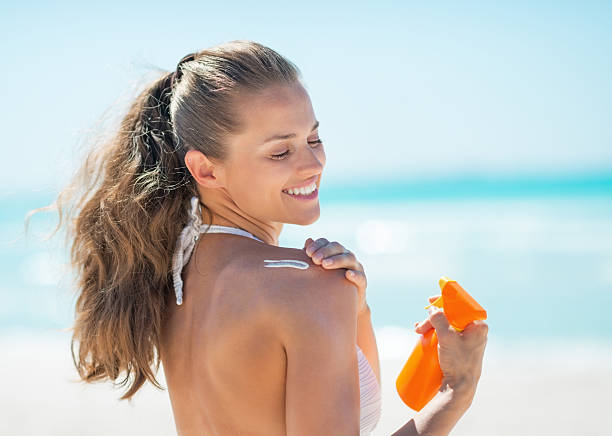The Correct Way for Women to Protect Themselves from the Sun In Summer
Taking care of the sun is one of the main factors during the summer, so understanding what to do for your skin type and also how to protect yourself with clothes will also be excellent for you.
How to protect yourself from the sun?
Protecting yourself from the sun is essential to keeping your skin healthy and preventing damage caused by exposure to UV rays. To do this, apply broad-spectrum sunscreen with SPF 30 or higher to all exposed areas of your skin, including your face, neck, arms, and legs. Reapply each two hours, or more regularly if you are sweating or swimming.

Avoid direct sun exposure during peak hours, which generally occur between 10am and 4pm. Choose outdoor activities early in the morning or late afternoon, when UV rays are less intense.
Wear light-colored cotton clothing to protect your skin from UV rays. Choose long-sleeved clothing, long pants and wide-brimmed hats to cover exposed areas of the body.
Protect your eyes by wearing quality sunglasses that block 100% of UVA and UVB rays. Choose sunglasses with polarized lenses to reduce glare and protect your eyes from excess sunlight.
Stay hydrated by drinking bounty of water all through the day, particularly amid open air activities. Sun exposure can lead to dehydration, so it’s important to drink water regularly to keep your body hydrated.
What are the best protectors for each skin type?
Choosing the ideal sunscreen depends on each person’s skin type and individual needs. For those with sensitive skin, look for sunscreens specifically formulated for sensitive skin, which are hypoallergenic, free of fragrances and irritating ingredients. Look for products with gentle ingredients, such as zinc oxide and titanium dioxide. Additionally, opt for mineral sunscreens, which are generally gentler on sensitive skin.

For oily or acne-prone skin, choose oil-free or dry-touch sunscreens, which help control oil and avoid clogging pores. Look for gel, gel-cream or fluid sunscreens, which are light and quickly absorbed. Also look for non-comedogenic products, which do not clog pores.
In the case of dry skin, opt for moisturizing and nourishing sunscreens, which help keep your skin soft and hydrated throughout the day. Look for cream or lotion sunscreens that contain moisturizing ingredients such as hyaluronic acid, glycerin and natural oils.
If you have combination skin, choose light, fast-absorbing sunscreens that provide enough hydration for dry areas, but do not leave the skin oily in the oiliest areas. Gel or gel-cream sunscreens are good options for combination skin, as they are light and do not leave an oily residue on the skin.
What clothes can I choose to protect myself from the sun?
Choosing the right clothing can be an effective way to protect your skin from sun damage. To do this, opt for long-sleeved shirts, blouses and dresses to cover your arms and protect your skin from UV rays. Lightweight, breathable fabrics such as cotton, linen and quick-drying fabrics are ideal for staying cool and comfortable.

Dark-colored clothing tends to offer better protection against UV rays than light-colored clothing. Additionally, some clothing is designed with fabrics that have a built-in sun protection factor (SPF), providing an additional layer of protection against UV rays.
Look for clothing specially designed with sun-protective fabrics, which are manufactured to block UV rays. These fabrics have a sun protection rating (UPF) and offer excellent protection against UV rays, helping to reduce the risk of sunburn and skin damage.
Wear wide-brimmed hats to protect your face, neck and ears from UV rays. Choose hats with wide brims that provide shade for your face and neck, and opt for fabrics that offer additional UV protection. Opt for long pants and long skirts to protect your legs from UV rays. Choose lightweight, breathable fabrics to keep you cool and comfortable during the heat of the day.
And for outdoor water activities, choose swimwear with UV-protective fabrics that help block UV rays and reduce the risk of sunburn.
